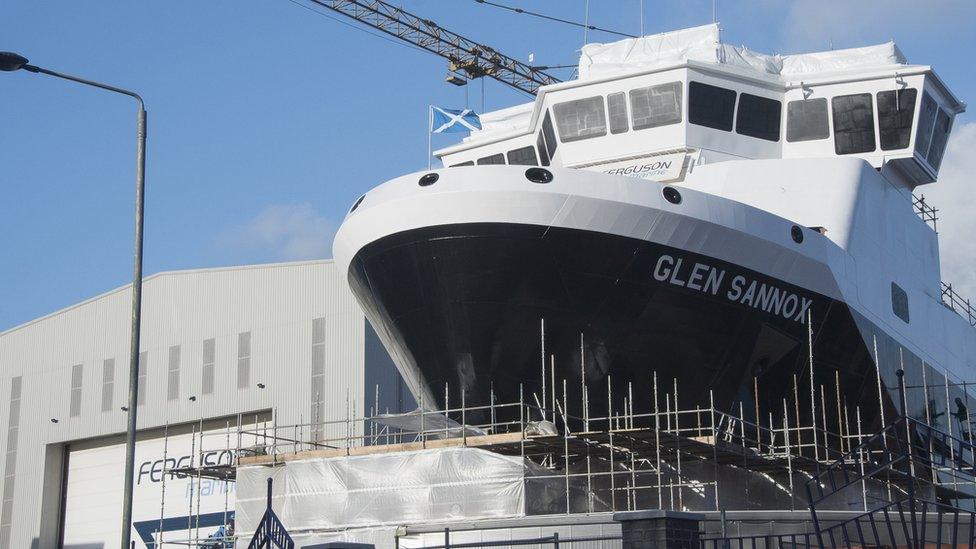Ferries 'value for money' study cost £620,000
- Published
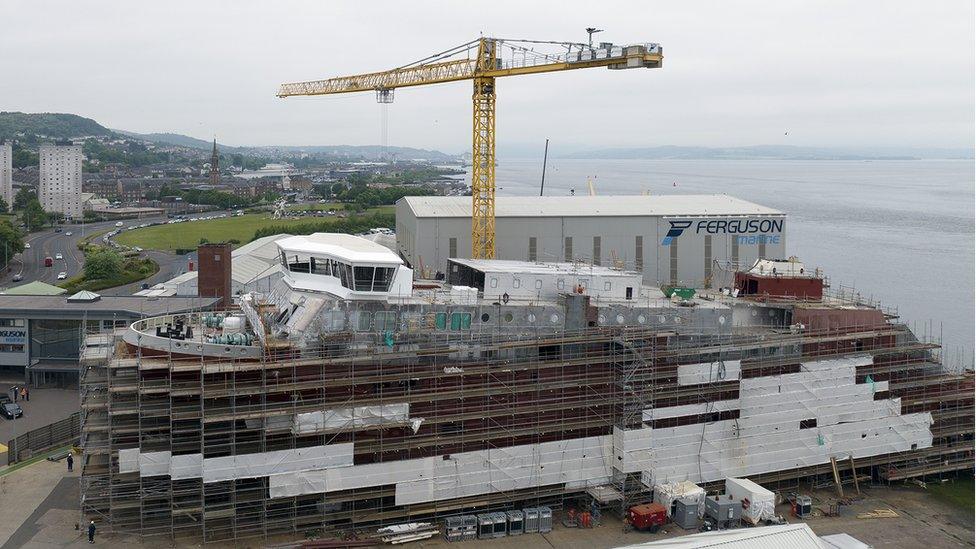
A "value for money" exercise said it would be cheaper to scrap Hull 802 and place a new order
A "value for money" study on the cost of completing two overbudget CalMac ferries at a nationalised shipyard cost the taxpayer £620,000, it has emerged.
The review said it would be cheaper to scrap one of the ships still being built at Ferguson Marine and place a new order elsewhere.
But the government said continuing the build of Hull 802 was the fastest way of securing a new ship.
The Scottish Conservatives accused ministers of wasting public funds.
The two ships, which were supposed to cost £97m, are currently more than £200m over budget and due to be delivered about six years late.
The Scottish government conducted a "due diligence" exercise after the new boss of the Port Glasgow shipyard said an an extra £72m was needed to complete Glen Sannox and Hull 802.
The review concluded there was a value for money case for finishing the first vessel Glen Sannox but not for Hull 802.
However, Wellbeing Economy Secretary Neil Gray told MSPs the funding would continue because scrapping the second ship would lead to further delays in securing a new vessel.
He also factored in "wider" issues such as the impact of cancelling the order on the Ferguson shipyard and the economy.
According to an answer from Mr Gray this week to a written parliamentary question from Conservative MSP Jamie Halcro Johnston, the value for money study - which involved civil servants and outside consultants - cost about £620,000.
Mr Halcro Johnston, his party's tourism and enterprise spokesman, said the government continued to "haemorrhage" money in relation to the ferries "on an industrial scale".
"On balance, ploughing on at Ferguson was probably the least worst option - as the alternative was even longer delays," he added.
"But for an eye-watering £620k to have been spent on a so-called value for money report establishing it is not cost effective is the latest kick in the teeth to taxpayers and betrayed islanders in a never-ending scandal."
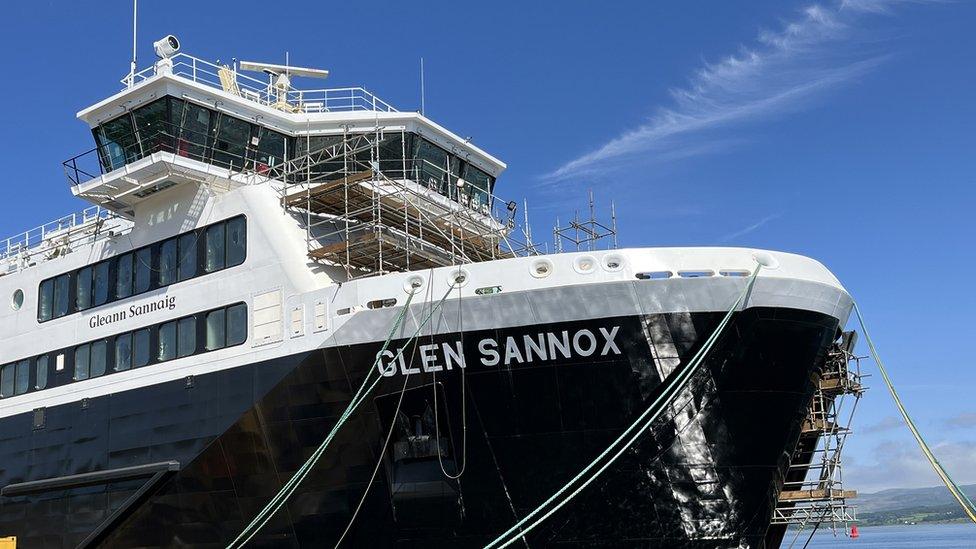
Work on Glen Sannox is nearing completion and it is due to be delivered later this year
The BBC understands the Ferguson Marine chief executive David Tydeman is puzzled by the figures used in the value for money exercise.
The cabinet secretary Neil Gray has faced calls from opposition politicians to release the detailed figures from the due diligence review.
He responded: "Our island communities deserve to be supported by two new, energy efficient vessels with the capacity and reliability required to support vibrant island economies.
"In setting out my decision to issue a written authority last month to enable work on vessel 802 to continue, there was clear, cross-party acknowledgement that this was the appropriate course of action - not least as it presents the fastest possible route to getting vital new lifeline services into service."
He added that the value for money assessment did not take into account "the impact added delays would have on our island communities, nor the broader social and economic benefits of continuing the vessel's build at Ferguson Marine".
The order for the ferries was awarded by the Scottish government-owned ferries procurement agency CMAL in 2015, a year after the Ferguson yard was rescued from administration by businessman Jim McColl.
CMAL blames "catastrophic contractor failure" by Mr McColl's company FMEL for the problems, while Mr McColl insists an inadequate concept design and subsequent interference by CMAL lie at the root of the delays and cost overruns.
The yard was nationalised in 2019 but costs continued to spiral under "turnaround director" Tim Hair, who was employed on a daily rate of more than £2,500. David Tydeman took over as chief executive in February last year after Mr Hair's departure.
Glen Sannox is currently expected to be delivered by the end of this year, with Hull 802 following on in late 2024.
- Published6 June 2023
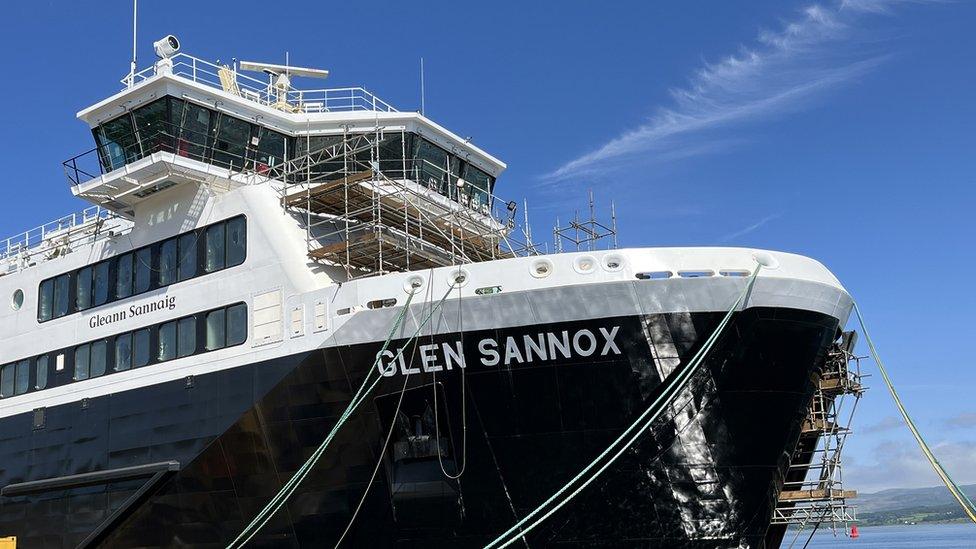
- Published6 June 2023
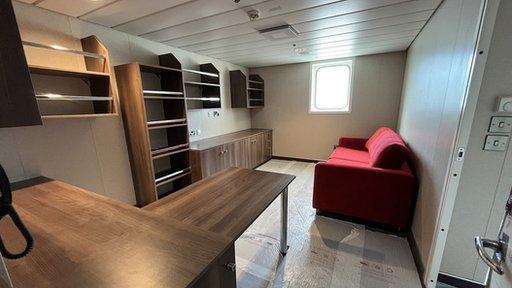
- Published23 March 2022
